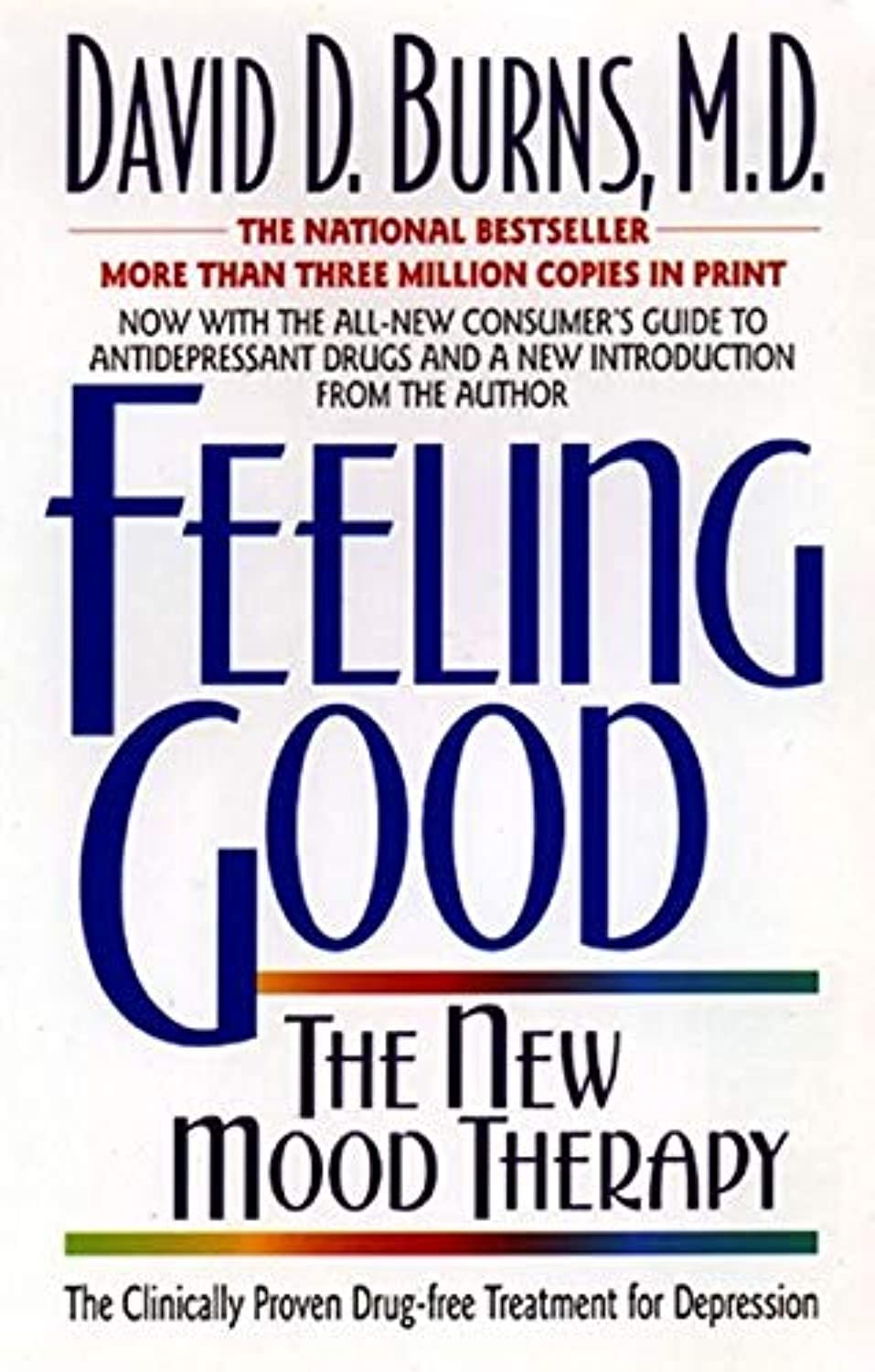Books About Mental Health - For Better Knowledge & Healing
Explore a list of insightful books that offer valuable perspectives on mental health, self-care, and personal growth to guide you on your healing journey.

Books about mental health are increasingly popular these days, especially after COVID, and are an accessible way to learn about and improve our emotional and psychological well-being.
Mental health is essential for a healthy and fulfilling especially since the rate has increased dramatically after the pandemic. Books on mental health can help us understand the causes of mental illness, the symptoms, and how to manage our mental health.
Buyers Guide: Books About Mental Health
We have researched these books to provide insights, strategies, and personal stories related to a wide range of mental health topics, from overcoming anxiety and depression to developing resilience and a positive outlook on life. With so much information available, it can be difficult to know where to start especially when you or someone are struggling with mental illness.
However, the right book can be a powerful tool for self-reflection, personal growth, and better mental health. Whether you're looking for practical tips, inspiration, or comfort, these books about mental health can provide invaluable information about the symptoms and ways to combat this disease. These books about mental health are great resources for anyone looking to improve their mental health and well-being.

This book offers practical advice for people who are struggling with negative thoughts and feelings and provides transparent, easy-to-follow strategies for overcoming depression, anxiety, and other mental health problems.
Anxiety, guilt, pessimism, procrastination, low self-esteem, and other black holes of depression can easily be alleviated. In Feeling Good, eminent psychiatrist, David D. Burns outlines the remarkable, scientifically proven techniques that will immediately lift your spirits and help you develop a positive outlook on life. In this updated edition of his highly acclaimed bestseller, Dr. Burns offers the latest breakthroughs in neuroscience and psychology to help you transform your mood and enjoy life again.
Sold by Amazon

The Power of Now: A Guide to Spiritual Enlightenment" is a spiritual and self-help book by Eckhart Tolle that explores living in the present moment. The book encourages readers to break free from the negative thoughts and emotions associated with the past and future, and instead focus on the present moment in order to achieve true happiness and fulfillment.
Tolle suggests that one can tap into a deep sense of inner peace and spiritual enlightenment by becoming fully aware of and present in each moment. The book has received widespread acclaim and has influenced the modern spiritual movement, helping countless individuals on their journeys toward self-discovery and growth.
Sold by Amazon

This book is a comprehensive guide to Cognitive Behavioral Therapy (CBT), which is a type of therapy that is highly effective in treating a wide range of mental health problems, including anxiety and depression.
Developed by two master clinicians with extensive experience in cognitive therapy treatment and training, this popular workbook shows readers how to improve their lives using cognitive therapy.
The book is designed to be used alone or in conjunction with professional treatment. Included the step-by-step worksheets teach specific skills that have helped hundreds of thousands of people conquer depression, panic attacks, anxiety, anger, guilt, shame, low self-esteem, eating disorders, substance abuse, and relationship problems.
Available at Amazon

This book provides helpful advice and strategies for teens struggling with anxiety. It covers common triggers for stress and provides practical tips for managing symptoms and overcoming negative thoughts and feelings.
Do the things you worry about feel overwhelming sometimes? Is anxiety getting in the way of making friends, dating, getting good grades, or just getting through the day? You may be wondering whether it's only developmental and will go away, or something more serious. This "survival guide" will help you identify the kind of anxiety you are having, how "normal" it is, and what you can do about it.
Available at Amazon
Books About Mental Health FAQs
Q: What should I read for better mental health?
Answer: Reading can be a powerful tool for improving mental health. Here are some recommendations across various genres that can help enhance your mental well-being:
1. Self-Help Books
- "The Power of Now" by Eckhart Tolle: This book focuses on living in the present moment and reducing anxiety.
- "Atomic Habits" by James Clear: Learn about building good habits and breaking bad ones, which can positively impact your mental health.
- "Feeling Good: The New Mood Therapy" by David D. Burns: A classic in cognitive-behavioral therapy that offers practical advice for overcoming depression.
2. Memoirs and Biographies
- "Educated" by Tara Westover: This memoir about overcoming a challenging upbringing can inspire resilience and personal growth.
- "When Breath Becomes Air" by Paul Kalanithi: A neurosurgeon's reflections on life, death, and what makes life meaningful.
3. Fiction
- "The Alchemist" by Paulo Coelho: A story about following your dreams and finding your purpose in life.
- "To Kill a Mockingbird" by Harper Lee: Explores themes of empathy, compassion, and understanding others.
4. Psychology and Science
- "Thinking, Fast and Slow" by Daniel Kahneman: Understand how your mind works and how to make better decisions.
- "The Body Keeps the Score" by Bessel van der Kolk: Learn about the impact of trauma on the body and mind and ways to heal.
5. Mindfulness and Meditation
- "Wherever You Go, There You Are" by Jon Kabat-Zinn: An introduction to mindfulness meditation and its benefits.
- "The Miracle of Mindfulness" by Thich Nhat Hanh: Practical advice on incorporating mindfulness into daily life.
6. Inspirational and Motivational
- "Man's Search for Meaning" by Viktor E. Frankl: A powerful book on finding purpose even in the most challenging circumstances.
- "The Four Agreements" by Don Miguel Ruiz: Offers a simple code of conduct to achieve a peaceful and fulfilling life.
7. Graphic Novels and Comics
- "Persepolis" by Marjane Satrapi: An autobiographical graphic novel about growing up during the Islamic Revolution in Iran.
- "Hyperbole and a Half" by Allie Brosh: A humorous and insightful look at mental health struggles through illustrated stories.
8. Poetry
- "The Sun and Her Flowers" by Rupi Kaur: A collection of poems about love, loss, trauma, healing, and empowerment.
- "Milk and Honey" by Rupi Kaur: Explores themes of survival and the experience of violence, abuse, love, and femininity.
Reading for better mental health involves exploring various genres and finding what resonates with you. Whether it's self-help, memoirs, fiction, or poetry, each book offers unique insights and can be a source of comfort, inspiration, and understanding. By incorporating these readings into your routine, you can gain new perspectives and tools to enhance your mental well-being.
Q: What are the top 3 mental health issues?
Answer: The top 3 mental health issues affecting individuals globally are:
- Depression: A persistent feeling of sadness and loss of interest in activities, which can interfere with daily functioning and well-being.
- Anxiety Disorders: A group of mental health conditions characterized by excessive fear and worry, which can include generalized anxiety disorder, panic disorder, and social anxiety disorder.
- Substance Abuse Disorders: Mental health conditions related to the excessive use of drugs or alcohol, which can lead to addiction and other serious health problems.
These are generalizations, and the specific mental health issues an individual may experience can vary widely based on a variety of factors, such as life experiences, biology, and culture. Seeking help from a mental health professional can be beneficial for managing mental health issues and promoting overall well-being.
Q: What are the 3 types of mental health?
Answer: Mental health is a broad field encompassing various aspects of our psychological well-being. Generally, mental health can be categorized into three main types: emotional, psychological, and social well-being. Each type plays a crucial role in our overall mental health. Here’s a brief overview of each type:
1. Emotional Well-Being
Emotional well-being refers to the ability to manage and express emotions effectively. It includes our capacity to experience and deal with a wide range of emotions, from joy and excitement to sadness and anger. Key aspects of emotional well-being include:
- Emotional Awareness: Recognizing and understanding our own emotions.
- Emotional Regulation: Managing emotions in a healthy way.
- Resilience: Bouncing back from setbacks and difficult situations.
2. Psychological Well-Being
Psychological well-being encompasses our mental functioning and cognitive processes. It involves how we think, perceive, and interpret our experiences. Key components of psychological well-being include:
- Self-Acceptance: Having a positive self-view and accepting oneself.
- Personal Growth: Continual development and self-improvement.
- Purpose in Life: Having meaningful goals and a sense of direction.
- Autonomy: Being independent and self-determined.
- Environmental Mastery: Managing life situations effectively.
3. Social Well-Being
Social well-being pertains to how we interact with others and our ability to form and maintain relationships. It includes our sense of belonging and the support systems we have in place. Key aspects of social well-being include:
- Healthy Relationships: Building and maintaining positive relationships with family, friends, and colleagues.
- Social Support: Having a network of people who provide emotional, informational, and practical support.
- Community Engagement: Participating in community activities and feeling connected to a larger social group.
Understanding these three types of mental health—emotional, psychological, and social well-being—can help us recognize the different facets of our mental health and take steps to improve our overall well-being. Each type is interconnected, and achieving a balance among them is essential for a healthy and fulfilling life. By nurturing our emotional health, fostering psychological resilience, and building strong social connections, we can enhance our mental health and overall quality of life.
Q: Why are books important for mental health?
Answer: Books can be an important tool for promoting mental health for several reasons:
- Escapism: Reading can provide a welcome escape from reality and allow you to temporarily immerse yourself in new experiences and worlds.
- Relaxation: Reading can be a calming and relaxing activity that can help reduce stress and anxiety.
- Emotional connection: Reading about characters and their experiences can help you feel less alone in your struggles and provide a sense of emotional connection.
- Personal growth: Reading about different perspectives and experiences can broaden your horizons and encourage personal growth.
- Mindfulness: Reading can help you be more present and mindful, as you focus your attention on the story and characters.
- Improved cognitive function: Reading can stimulate the brain and help improve cognitive function, including memory and critical thinking skills.
- Increased empathy: Reading about the experiences of others can increase compassion and understanding, promoting emotional intelligence and a sense of connectedness with others.
It's important to choose books that align with your interests and that are supportive of your mental well-being.
Q: How can I master my mental health?
Answer: Mastering your mental health involves several key steps:
- Practice self-care: Take care of your physical and emotional well-being through activities such as exercise, eating a healthy diet, getting enough sleep, and engaging in hobbies you enjoy.
- Build a support network: Surround yourself with people who are positive and supportive, and reach out to them when you need help or just someone to talk to.
- Manage stress: Find healthy ways to cope with stress, such as meditation, yoga, or deep breathing exercises.
- Challenge negative thoughts: Recognize and challenge negative thoughts, and replace them with positive ones.
- Seek professional help: If needed, don't hesitate to reach out to a mental health professional for support and guidance.
- Maintain a healthy lifestyle: This includes regular exercise, a balanced diet, and enough sleep.
Remember, taking care of your mental health is a continuous process, and it's important to be patient and kind to yourself.
